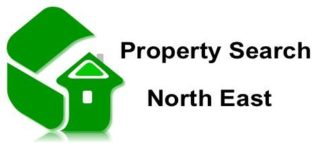Choosing a conveyancer in 2013
Choosing a conveyancer in 2013 – The Guardian
A mandatory but nerve-jangling part of buying and selling a home is conveyancing – the legal process involving the transfer of property ownership titles from one person to another.
This will be done either by a solicitor (all are qualified to do this work, although it pays to hire one who has experience) or by a dedicated licenced conveyancer.
Solicitors who reach consistently high standards of conveyancing, as tested by the Law Society can carry a kitemark-style logo stating they are in the Conveyancing Quality Scheme (CQS). Conveyancers are authorised by the Council for Licensed Conveyancers and listed on its website.
What do they do?
Whichever you choose, the individual has six major tasks to undertake for a buyer:
* He or she will conduct vital searches with local authorities, utility companies and other bodies to ensure no future plans or financial liabilities hang over the property in question. The searches will reveal if there is a sewer running close to the property, if it is liable for local church repairs, and other key details like that.
* Advise you of any “incurred costs” including well-known ones like stamp duty or much more unusual charges like chancel repair liability applying to a few homes near churches.
* Check (and if necessary draft) contracts regarding the purchase of the property.
* Ensure your mortgage lender has all the relevant information about the property, from the sellers as well as from yourself.
* Carry out on your behalf the payment of fees at the end of the transaction, such as estate agency costs and stamp duty.
* Register new owners with the Land Registry.
When and how do I choose a conveyancer?
Appoint a conveyancer as soon as you decide to sell and do not wait until you find a home to buy – this way, the maximum paperwork can be sorted in advance.
You may save money if you appoint the conveyancer in tandem with your choice of mortgage lender. Since the credit crunch, some lenders work only with a panel of conveyancers who they regard as particularly scrupulous at checking on searches and ensuring there are no problems with the purchase (a process known as due diligence).
If you are tied to a specific mortgage lender, you can request a list of its approved conveyancers and choose from those. Or instead, use your existing solicitor or conveyancer or follow the recommendation of a trusted contact who has moved house – but you may be charged by your lender if it uses its own, separate approved conveyancer.
Consider using an online conveyancer. The most sophisticated providers allow you to check progress online; they typically use emails or texts to prompt you for additional paperwork or approvals. You obviously need to be IT-savvy to make the best use of this.
How much will it cost?
Whichever type of conveyancer you use, always check charges upfront.
Costs vary according to the price of homes being bought and sold, despite the fact that a £5m mansion may require no more legal work than a £100,000 studio flat.
